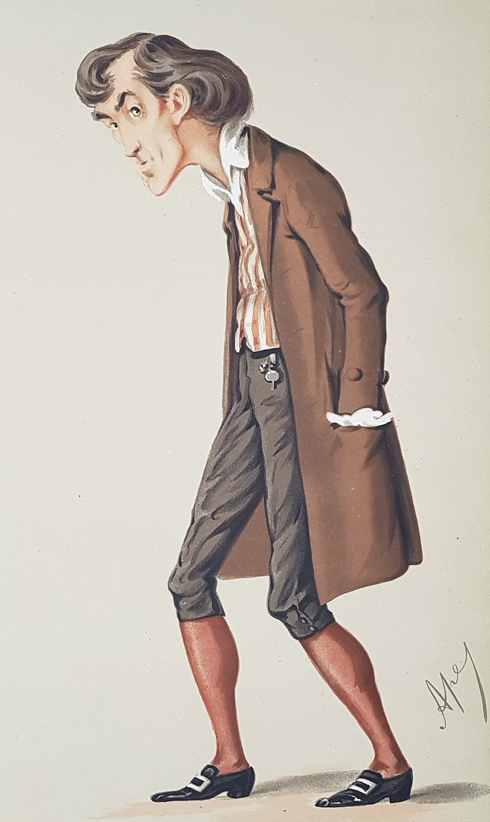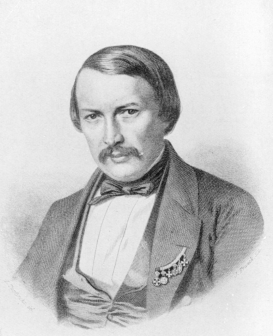|
1830 In Literature
This article contains information about the literary events and publications of 1830. Events *February – Barthold Georg Niebuhr's house burns down, but most of his books are saved. *February 25 – The première of Victor Hugo's play '' Hernani'' in Paris elicits protests from an audience seeing it as an attack on Classicism. *March 26 – The Book of Mormon is published by Joseph Smith in Palmyra, New York. *May 22 – Amos Bronson Alcott marries Abby May at King's Chapel, Boston (Massachusetts). *May 24 – Sarah Josepha Hale's ''Poems for Our Children'', including "Mary's Lamb", with the verse "Mary Had a Little Lamb", is published by Marsh, Capen & Lyon in Boston, Massachusetts. *July or later – Victor Cousin is elected to the Académie française to replace Joseph Fourier. *July 1 – Edgar Allan Poe matriculates as a cadet at the United States Military Academy, West Point. *August – François-René de Chateaubriand sacrifices his political career by refusing to swear a ... [...More Info...] [...Related Items...] OR: [Wikipedia] [Google] [Baidu] |
Barthold Georg Niebuhr
Barthold Georg Niebuhr (27 August 1776 – 2 January 1831) was a Danish–German statesman, banker, and historian who became Germany's leading historian of Ancient Rome and a founding father of modern scholarly historiography. By 1810 Niebuhr was inspiring German patriotism in students at the University of Berlin by his analysis of Roman economy and government. Niebuhr was a leader of the Romantic era and symbol of German national spirit that emerged after the defeat at Jena. But he was also deeply rooted in the classical spirit of the Age of Enlightenment in his intellectual presuppositions, his use of philologic analysis, and his emphasis on both general and particular phenomena in history. Education Niebuhr was born in Copenhagen, the son of Carsten Niebuhr, a prominent German geographer resident in that city. His father provided his early education. By 1794 the precocious young Niebuhr had already become an accomplished classical scholar who read several languages. That year ... [...More Info...] [...Related Items...] OR: [Wikipedia] [Google] [Baidu] |
Victor Cousin
Victor Cousin (; 28 November 179214 January 1867) was a French philosopher. He was the founder of " eclecticism", a briefly influential school of French philosophy that combined elements of German idealism and Scottish Common Sense Realism. As the administrator of public instruction for over a decade, Cousin also had an important influence on French educational policy. Biography Early years The son of a watchmaker, he was born in Paris, in the Quartier Saint-Antoine. At the age of ten he was sent to the local grammar school, the Lycée Charlemagne, where he studied until he was eighteen. ''Lycées'' being organically linked to the University of France and its Faculties since their Napoleonic institution (the ''baccalauréat'' was awarded by juries made of university professors) Cousin was "crowned" in the ancient hall of the Sorbonne for a Latin oration he wrote which owned him a first prize at the ''concours général'', a competition between the best pupils at ''lycé ... [...More Info...] [...Related Items...] OR: [Wikipedia] [Google] [Baidu] |
Drury Lane
Drury Lane is a street on the eastern boundary of the Covent Garden area of London, running between Aldwych and High Holborn. The northern part is in the borough of Camden and the southern part in the City of Westminster. Notable landmarks The street originated as an early medieval lane referred to in Latin as the ''Via de Aldwych'', which probably connected St. Giles Leper Hospital with the fields of Aldwych Close, owned by the hospital but traditionally said to have been granted to the Danes as part of a peace treaty with King Alfred the Great in Saxon times. It acquired its name from the Suffolk barrister Sir Robert Drury, who built a mansion called Drury House on the lane around 1500. After the death in 1615 of his great-great-grandson, another Robert Drury, the property passed out of the family. It became the London house of the Earl of Craven, then a public house under the sign of his reputed mistress, the Queen of Bohemia. Subsequently, the gardens and courtyards ... [...More Info...] [...Related Items...] OR: [Wikipedia] [Google] [Baidu] |
Olympic Theatre
The Olympic Theatre, sometimes known as the Royal Olympic Theatre, was a 19th-century London theatre, opened in 1806 and located at the junction of Drury Lane, Wych Street and Newcastle Street. The theatre specialised in comedies throughout much of its existence. Along with three other Victorian theatres (Opera Comique, Globe and Gaiety), the Olympic was eventually demolished in 1904 to make way for the development of the Aldwych. Newcastle and Wych streets also vanished. 1806-1849: Early days and Madame Vestris The first Olympic theatre was built in 1806 on the site of Drury House (later Craven House), for the impresario Philip Astley, a retired cavalry officer. The original name of the house was the Olympic Pavilion. It was said to be built from the timbers of the French warship '' Ville de Paris''. It opened on 1 December 1806Victo ... [...More Info...] [...Related Items...] OR: [Wikipedia] [Google] [Baidu] |
Actor-manager
An actor-manager is a leading actor who sets up their own permanent theatrical company and manages the business, sometimes taking over a theatre to perform select plays in which they usually star. It is a method of theatrical production used consistently since the 16th century, particularly common in 19th-century Britain and the United States. History The first actor-managers, such as Robert Browne, appeared in the late 16th century, to be followed by another Robert Browne (no relation) and George Jolly in the 17th century. In the 18th century, actor-managers such as Colley Cibber and David Garrick gained prominence. The system of actor-management generally produced high standards of performance, as demonstrated by such 19th-century actors as William Macready, Charles Wyndham, Henry Irving, Frank Benson and Herbert Beerbohm Tree, by husband-wife teams such as Squire Bancroft and Effie Bancroft, Frank Wyatt and Violet Melnotte, William Hunter Kendal and Madge Robe ... [...More Info...] [...Related Items...] OR: [Wikipedia] [Google] [Baidu] |
Elizabeth Vestris
Lucia Elizabeth Vestris (''née'' Elizabetta Lucia Bartolozzi; 3 March 1797 – 8 August 1856) was an English actress and a contralto opera singer, appearing in works by, among others, Mozart and Rossini. While popular in her time, she was more notable as a theatre producer and manager. After accumulating a fortune from her performances, she leased the Olympic Theatre in London and produced a series of burlesques and extravaganzas, especially popular works by James Planché, for which the house became famous. She also produced his work at other theatres she managed. Early life and education She was born in London in 1797, the first of two daughters of German pianist Theresa Jansen Bartolozzi and art dealer Gaetano Stefano Bartolozzi. He was a musician and son of the immigrant Francesco Bartolozzi, a noted artist and engraver, appointed as Royal Engraver to the king. [...More Info...] [...Related Items...] OR: [Wikipedia] [Google] [Baidu] |
Hendrik Conscience
Henri (Hendrik) Conscience (3 December 1812 – 10 September 1883) was a Belgian author. He is considered the pioneer of Dutch-language literature in Flanders, writing at a time when Belgium was dominated by the French language among the upper classes, in literature and government. Conscience fought as a Belgian revolutionary in 1830 and was a notable writer in the Romanticist style popular in the early 19th century. He is best known for his romantic nationalist novel, '' The Lion of Flanders'' (1838), inspired by the victory of a Flemish peasant militia over French knights at the 1302 Battle of the Golden Spurs during the Franco-Flemish War. Over the course of his career, he published over 100 novels and novellas and achieved considerable popularity. After his death, with the decline of romanticism, his works became less fashionable but are still considered as classics of Flemish literature. Early life Childhood Hendrik was the son of a Frenchman, Pierre Conscience, from Bes ... [...More Info...] [...Related Items...] OR: [Wikipedia] [Google] [Baidu] |
Belgian Revolution
The Belgian Revolution (, ) was the conflict which led to the secession of the southern provinces (mainly the former Southern Netherlands) from the United Kingdom of the Netherlands and the establishment of an independent Kingdom of Belgium. The people of the south were mainly Flemings and Walloons. Both peoples were traditionally Roman Catholic as contrasted with Protestant-dominated (Dutch Reformed) people of the north. Many outspoken liberals regarded King William I's rule as despotic. There were high levels of unemployment and industrial unrest among the working classes. On 25 August 1830, riots erupted in Brussels and shops were looted. Theatregoers who had just watched the nationalistic opera '' La muette de Portici'' joined the mob. Uprisings followed elsewhere in the country. Factories were occupied and machinery destroyed. Order was restored briefly after William committed troops to the Southern Provinces but rioting continued and leadership was taken up by radicals ... [...More Info...] [...Related Items...] OR: [Wikipedia] [Google] [Baidu] |
Louis-Philippe Of France
Louis Philippe (6 October 1773 – 26 August 1850) was King of the French from 1830 to 1848, and the penultimate monarch of France. As Louis Philippe, Duke of Chartres, he distinguished himself commanding troops during the Revolutionary Wars and was promoted to lieutenant general by the age of nineteen, but he broke with the Republic over its decision to execute King Louis XVI. He fled to Switzerland in 1793 after being connected with a plot to restore France's monarchy. His father Louis Philippe II, Duke of Orléans (Philippe Égalité) fell under suspicion and was executed during the Reign of Terror. Louis Philippe remained in exile for 21 years until the Bourbon Restoration. He was proclaimed king in 1830 after his cousin Charles X was forced to abdicate by the July Revolution (and because of the Spanish renounciation). The reign of Louis Philippe is known as the July Monarchy and was dominated by wealthy industrialists and bankers. He followed conservative policie ... [...More Info...] [...Related Items...] OR: [Wikipedia] [Google] [Baidu] |
François-René De Chateaubriand
François-René, vicomte de Chateaubriand (4 September 1768 – 4 July 1848) was a French writer, politician, diplomat and historian who had a notable influence on French literature of the nineteenth century. Descended from an old aristocratic family from Brittany, Chateaubriand was a royalist by political disposition. In an age when large numbers of intellectuals turned against the Church, he authored the ''Génie du christianisme'' in defense of the Catholic faith. His works include the autobiography '' Mémoires d'Outre-Tombe'' ("''Memoirs from Beyond the Grave''"), published posthumously in 1849–1850. Historian Peter Gay says that Chateaubriand saw himself as the greatest lover, the greatest writer, and the greatest philosopher of his age. Gay states that Chateaubriand "dominated the literary scene in France in the first half of the nineteenth century". Biography Early years and exile Born in Saint-Malo on 4 September 1768, the last of ten children, Chateaub ... [...More Info...] [...Related Items...] OR: [Wikipedia] [Google] [Baidu] |
United States Military Academy
The United States Military Academy (USMA), also known Metonymy, metonymically as West Point or simply as Army, is a United States service academies, United States service academy in West Point, New York. It was originally established as a fort, since it sits on strategic high ground overlooking the Hudson River with a scenic view, north of New York City. It is the oldest of the five American service academies and educates cadets for Commission (document)#United States, commissioning into the United States Army. The academy was founded in 1802, one year after President Thomas Jefferson directed that plans be set in motion to establish it. It was constructed on site of Fort Clinton (West Point), Fort Clinton on West Point overlooking the Hudson, which Colonial General Benedict Arnold conspired to turn over to the British during the American Revolutionary War, Revolutionary War. The entire central campus is a National Historic Landmark, national landmark and home to scores of ... [...More Info...] [...Related Items...] OR: [Wikipedia] [Google] [Baidu] |
Edgar Allan Poe
Edgar Allan Poe (; Edgar Poe; January 19, 1809 – October 7, 1849) was an American writer, poet, editor, and literary critic. Poe is best known for his poetry and short stories, particularly his tales of mystery and the macabre. He is widely regarded as a central figure of Romanticism in the United States, and of American literature. Poe was one of the country's earliest practitioners of the short story, and considered to be the inventor of the detective fiction genre, as well as a significant contributor to the emerging genre of science fiction. Poe is the first well-known American writer to earn a living through writing alone, resulting in a financially difficult life and career. Poe was born in Boston, the second child of actors David and Elizabeth "Eliza" Poe. His father abandoned the family in 1810, and when his mother died the following year, Poe was taken in by John and Frances Allan of Richmond, Virginia. They never formally adopted him, but he was with them wel ... [...More Info...] [...Related Items...] OR: [Wikipedia] [Google] [Baidu] |





.jpg)


.jpg)
